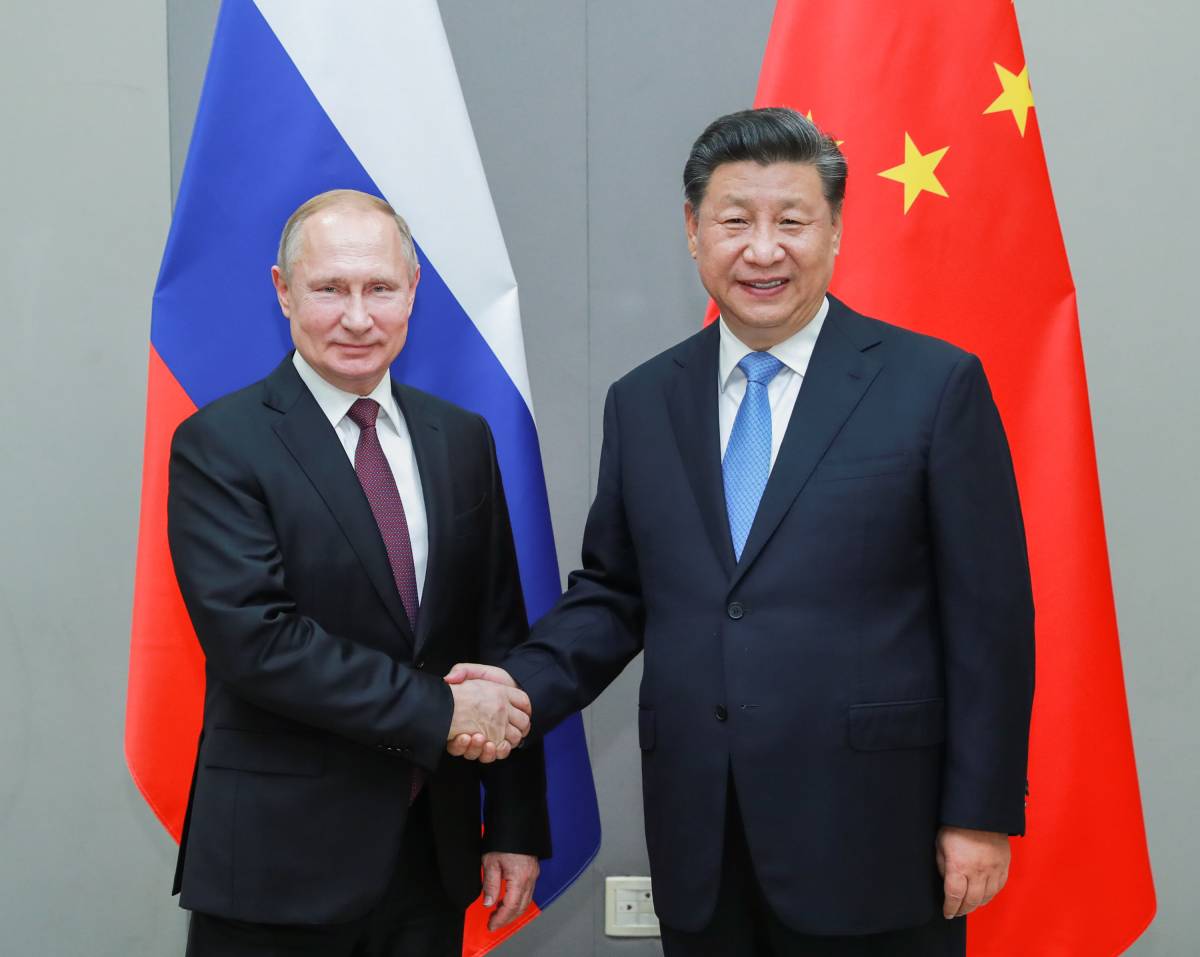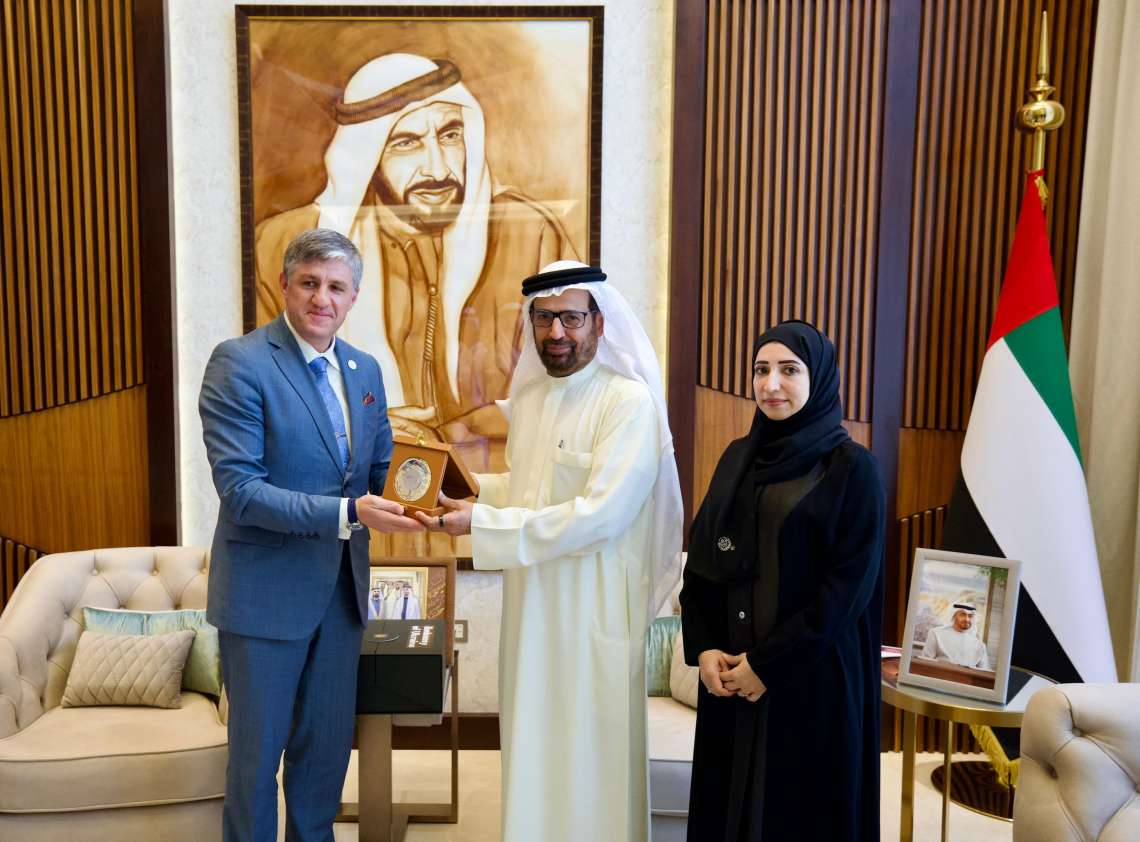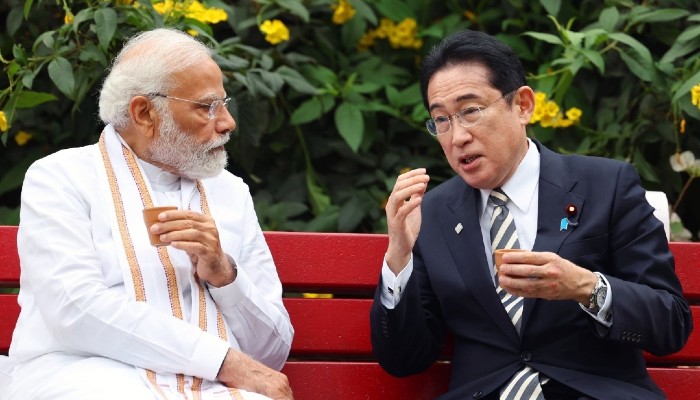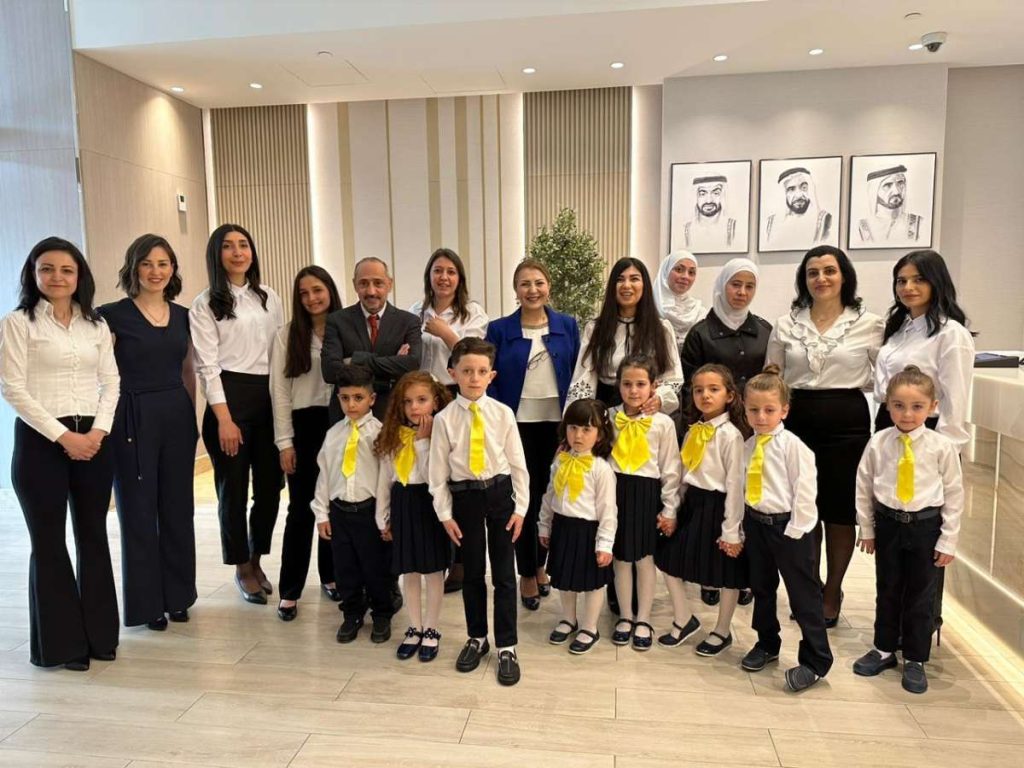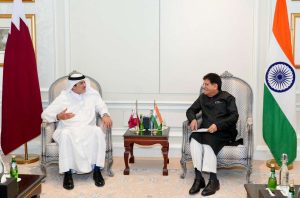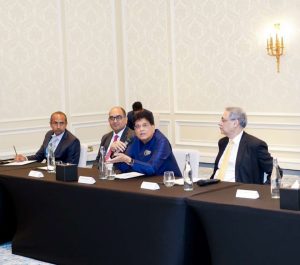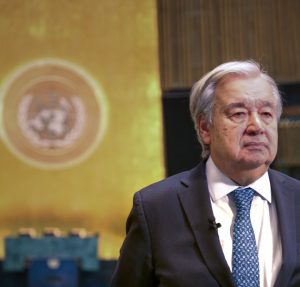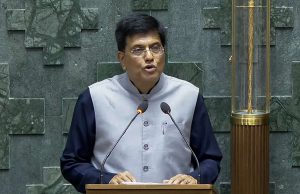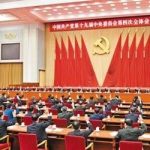There are plans to expand industrial cooperation, including aircraft and shipbuilding industries, and other high-tech sectors…reports Asian Lite News
Russian President Vladimir Putin said Tuesday a Chinese peace plan could provide a basis for a settlement of the fighting in Ukraine when the West is ready for it.
Speaking after talks with Chinese leader Xi Jinping, Putin charged that Ukraine’s Western allies so far have shown no interest in that.
He also said British plans to provide Ukraine with ammunition for battle tanks containing depleted uranium signifies the West switching to supplying Kyiv with weapons containing nuclear components. He said that Russia will respond if it happens, but didn’t elaborate.
Speaking Tuesday at talks involving top officials from both countries, Putin said he wants to expand bilateral economic ties, noting Russian-Chinese trade rose by 30% last year to $185 billion. It’s expected to top $200 billion this year, he added.
Russia stands “ready to meet the Chinese economy’s growing demand for energy resources” by boosting deliveries of oil and gas, he said.
There are plans to expand industrial cooperation, including aircraft and shipbuilding industries, and other high-tech sectors.
Xi said he aimed to “strengthen coordination and interaction” with Russia, adding that it would help “the prosperity and revival of China and Russia.”
Russia’s Deputy Foreign Minister Sergei Ryabkov accused NATO of wanting to become the world’s dominant military force and said Moscow is trying to prevent it.
“That is why we are expanding our cooperation with China, including in the security sphere,” he said.
Western officials “have seen some signs” that Putin also wants lethal weapons from China, though there is no evidence Beijing has granted his request, NATO Secretary-General Jens Stoltenberg said in Brussels on Tuesday.
“China should not provide lethal aid to Russia,” Stoltenberg said. “That would be to support an illegal war and only prolong the war.”
Japan in Ukraine
Meanwhile, Japanese Prime Minister Fumio Kishida made a surprise visit Tuesday to Kyiv, stealing some of the global attention from Asian rival President Xi Jinping of China, who is in Moscow to show support for Russia against the West.
The two visits, about 800 kilometres (500 miles) apart, highlighted the nearly 13-month-old war’s repercussions for international diplomacy as countries line up behind Moscow or Kyiv. They follow a week in which China and Japan both enjoyed diplomatic successes that have emboldened their foreign policy.
Kishida, who is to chair the Group of Seven summit in May, will meet President Volodymyr Zelenskyy in the Ukrainian capital, coinciding with Xi’s talks for a second day with President Vladimir Putin in the Russian capital.
Kishida will “show respect to the courage and patience of the Ukrainian people who are standing up to defend their homeland under President Zelenskyy’s leadership, and show solidarity and unwavering support for Ukraine as head of Japan and chairman of G-7,” during his visit to Ukraine, the Japanese Foreign Ministry said in announcing his trip to Kyiv.
Kyodo News said Kishida visited a church in Bucha, a town outside Kyiv that became a symbol of Russian atrocities against civilians, laid flowers at a church there and paid his respects to the victims.
“I’m outraged by the cruelty. I represent the Japanese citizens to express my condolences to those who lost their lives,” he was quoted as saying.
Kishida was the only G-7 leader who hadn’t visited Ukraine and was under domestic pressure to do so. U.S. President Joe Biden took a similar route to visit Kyiv last month, just before the first anniversary of Russia’s invasion.
Kishida, Japan’s first postwar leader to enter a war zone, was invited by Zelenskyy in January to visit Kyiv.
Japan’s aid to Ukraine
Due to its pacifist principles, Japan’s support for Ukraine has been limited to equipment such as helmets, bulletproof vests and drones, and humanitarian supplies including generators.
Japan has contributed more than $7 billion to Ukraine, and accepted more than 2,000 displaced Ukrainians and helped them with housing assistance and support for jobs and education, a rare move in a country that is known for its strict immigration policy.
Two different European-Pacific partnerships
U.S. Ambassador to Japan Rahm Emanuel tweeted about the “two very different European-Pacific partnerships” that unfolded Tuesday.
“Kishida stands with freedom, and Xi stands with a war criminal,” Emanuel said, referring to last week’s action by the International Criminal Court, which issued an arrest warrant for Putin, saying it wanted to put him on trial for the abductions of thousands of children from Ukraine.
Tokyo joined the U.S. and European nations in sanctioning Russia over its invasion and providing humanitarian and economic support for Ukraine. In contrast, China has refused to condemn Moscow’s aggression and criticized Western sanctions against Moscow, while accusing NATO and Washington of provoking Putin’s military action.
Japan was quick to react because it fears the possible impact of a war in East Asia, where China’s military has grown increasingly assertive and has escalated tensions around self-ruled Taiwan, which Beijing claims as its territory.
At a meeting Tuesday with Russian Prime Minister Mikhail Mishustin, Xi said he invited Putin to visit China later this year for a top-level meeting of China’s One Belt, One Road regional initiative, which seeks to extend Beijing’s influence through economic cooperation projects.
Moscow and Beijing have both weathered international condemnation of their human rights record. The Chinese government has been widely condemned for alleged atrocities against Uighur Muslims in its far western Xinjiang region. The allegations include genocide, forced sterilization and the mass detention of nearly a million Uighurs. Beijing has denied the allegations.
China looks to Russia as a partner in standing up to what both see as US aggression, domination of global affairs and unfair criticism of their human rights records.

